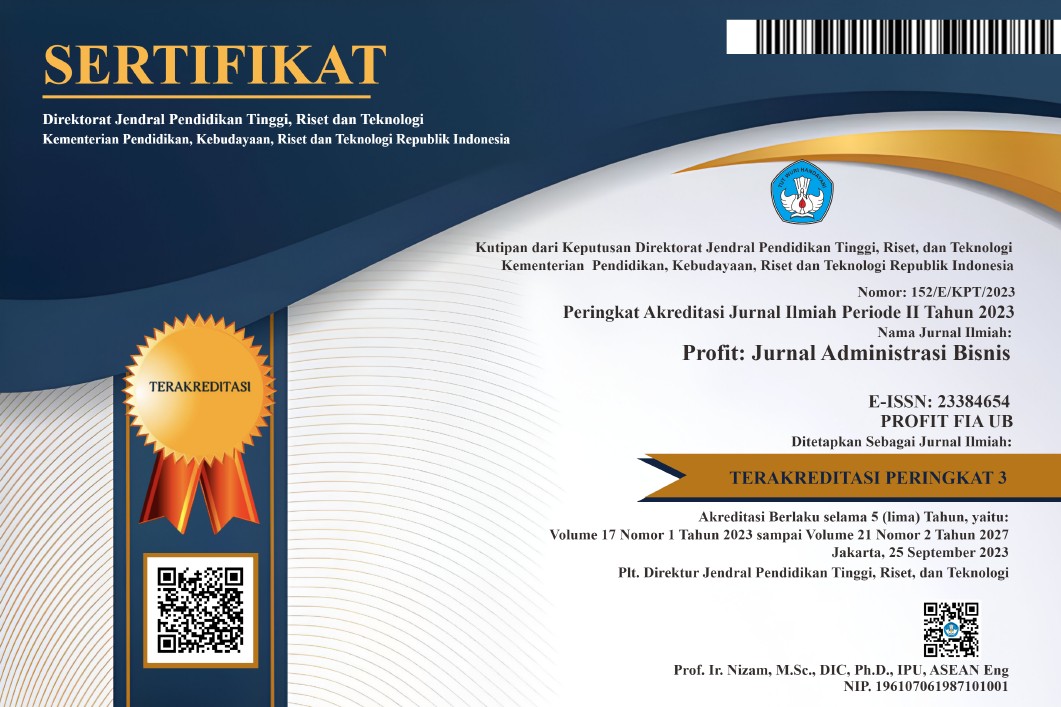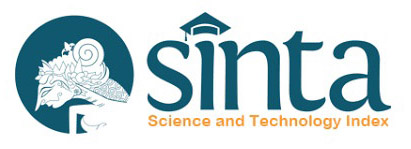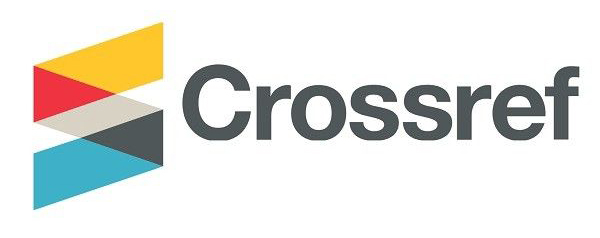PERAN JOB QUALITY DAN PEMBERDAYAAN PSIKOLOGIS TERHADAP INOVASI DI PERUSAHAAN START-UP INDONESIA
Keywords:
job quality, innovation, start-up, digital, IndonesiaAbstract
Job satisfaction and job quality refer to the achievement level of employee wellbeing and organizational performance. Job quality and psychological empowerment encourage innovation within many business organizations. Previous studies argue that job quality and psychological empowerment are related only to job satisfaction, not innovation especially in service industries and public sector. Thus, this study conceptualized how job quality and psychological empowerment contribute to innovation. As a basis for conceptualization in term of job quality, psychological empowerment, and innovation, this study employed a case study on Indonesian digital startup companies. The conceptual framework performs as the basis for developing further studies.
References
Akella, J., Gargi, N., & Mehrotra, T. (2015). Putting digital process innovation at the center of organizational change. McKinsey Quarterly, 2, 1–8. https://doi.org/https://doi.org/10.1016/B978-0-323-39307-2.00039-4
Alberti, F. G., & Pizzurno, E. (2017). Oops, I did it again! Knowledge leaks in open innovation networks with start-ups. European Journal of Innovation Management, 20(1), 50–79. https://doi.org/10.1108/EJIM-11-2015-0116
Audenaert, M., Vanderstraeten, A., & Buyens, D. (2017). When innovation requirements empower individual innovation: the role of job complexity. Personnel Review, 46(3), 608–623. https://doi.org/10.1108/PR-10-2014-0219
CB Insights. (2018). The Top 20 reasons Startups fail. In CB Insights. Retrieved from https://www.cbinsights.com/research/startup-failure-reasons-top/
Clarke, M. (2015). To what extent a “bad†job? Employee perceptions of job quality in community aged care. Employee Relations, 37(2), 192–208. https://doi.org/10.1108/ER-11-2013-0169
De Zubielqui, G. C., Jones, J., & Statsenko, L. (2016, January 1). Managing innovation networks for knowledge mobility and appropriability: A complexity perspective. Entrepreneurship Research Journal, Vol. 6, pp. 75–109. https://doi.org/10.1515/erj-2015-0016
Deverka, P. A., Majumder, M. A., Villanueva, A. G., Anderson, M., Bakker, A. C., Bardill, J., … McGuire, A. L. (2017, September 22). Creating a data resource: What will it take to build a medical information commons? Genome Medicine, Vol. 9. https://doi.org/10.1186/s13073-017-0476-3
DÃaz-Chao, Ã., Ficapal-CusÃ, P., & Torrent-Sellens, J. (2016). Economic Crisis and Job Quality in Spain: A Multi-dimensional and Micro-data Empirical Approach. Social Indicators Research, 125(2), 613–633. https://doi.org/10.1007/s11205-014-0850-0
Durmusoglu, S. S., Nayir, D. Z., Chaudhuri, M., Chen, J., Joens, I., & Scheuer, S. (2018). Barriers to firm service innovativeness in emerging economies. Journal of Services Marketing, 32(7), 925–944. https://doi.org/10.1108/JSM-11-2016-0411
Erhel, C., & Guergoat-Larivière, M. (2016). Innovation and job quality regimes: a joint typology for the EU Christine Erhel and Mathilde Guergoat-Larivière. 1–32.
Findlay, P., Kalleberg, A. L., & Warhurst, C. (2013). The challenge of job quality. Human Relations, 66(4), 441–451. https://doi.org/10.1177/0018726713481070
Flynn, M., Dooley, L., O’Sullivan, D., & Cormican, K. (2004). Idea Management for SAP. America, 7(4), 417–442.
GarcÃa-Buades, M. E., Ramis-Palmer, C., & Manassero-Mas, M. A. (2015). Climate for innovation, performance, and job satisfaction of local police in Spain. Policing, 38(4), 722–737. https://doi.org/10.1108/PIJPSM-02-2015-0019
Garg, S., & Dhar, R. (2017). Employee service innovative behavior: The roles of leader-member exchange (LMX), work engagement, and job autonomy. International Journal of Manpower, 38(2), 242–258. https://doi.org/http://dx.doi.org/10.1108/IJM-04-2015-0060
Goldsberry, C. (2007). Reinventing the company. Modern Plastics Worldwide, 84(10), 152–153.
Greenacre, P., Gross, R., & Speirs, J. (2012). Innovation Theory: A review of the literature. Imperial College Centre for Energy Policy and Technology (ICEPT), (May), 1–49. https://doi.org/10.1016/j.surfcoat.2008.04.067
Jordan, G., MigliÄ, G., Todorović, I., & MariÄ, M. (2017). Psychological empowerment, job satisfaction and organizational commitment among lecturers in higher education: Comparison of six CEE countries. Organizacija, 50(1), 17–32. https://doi.org/10.1515/orga-2017-0004
Kazlauskaite, R., Buciuniene, I., & Turauskas, L. (2011). Organisational and psychological empowerment in the HRM-performance linkage. Employee Relations, 34(2), 138–158. https://doi.org/10.1108/01425451211191869
Knol, J., & Van Linge, R. (2009). Innovative behaviour: The effect of structural and psychological empowerment on nurses. Journal of Advanced Nursing, 65(2), 359–370. https://doi.org/10.1111/j.1365-2648.2008.04876.x
KovaÄiÄ, H., & Rus, A. (2016). Innovations in organisations: An integrative framework. Teorija in Praksa, 53(5), 1172–1190.
Kylliäinen, J. (2019). The Importance of Innovation – What Does it Mean for Businesses and our Society? Retrieved from Viima website: https://www.viima.com/blog/importance-of-innovation
Leschke, J., Watt, A., & Finn, M. (2008). Putting a Number on Job Quality? Constructing a European Job Quality Index. ETUI-REHS Working Paper, 2008.03, 1–23. Retrieved from https://www.etui.org/Publications2/Working-Papers/Putting-a-number-on-job-quality
Lethbridge, K., Andrusyszyn, M.-A., Iwasiw, C., Laschinger, H. K. S., & Fernando, R. (2011). Structural and Psychological Empowerment and Reflective Thinking: Is There a Link? Journal of Nursing Education, 50(11), 636–645. https://doi.org/10.3928/01484834-20110817-02
Mathieu, J. E., Gilson, L. L., & Ruddy, T. M. (2006). Empowerment and Team Effectiveness : An Empirical Test of an Integrated Model. 91(1), 97–108. https://doi.org/10.1037/0021-9010.91.1.97
Newman, A., Round, H., Wang, S., & Mount, M. (2019). Innovation climate: A systematic review of the literature and agenda for future research. Journal of Occupational and Organizational Psychology. https://doi.org/10.1111/joop.12283
Nikpour, A. (2018). Psychological Empowerment and Organizational Innovation: Mediating Role of Job Satisfaction and Organizational Commitment. International Journal of Organizational Leadership, 7(2), 106–119. https://doi.org/10.33844/ijol.2018.60421
Park, S., & Jo, S. J. (2018). The impact of proactivity, leader-member exchange, and climate for innovation on innovative behavior in the Korean government sector. Leadership and Organization Development Journal, 39(1), 130–149. https://doi.org/10.1108/LODJ-09-2016-0216
Prasetya, G. (2019). 90% Bisnis Startup Gagal, Ini Salah Satu Cara Agar Kamu Tak Ikut Mengalaminya. Retrieved February 9, 2020, from Tech In Asia website: https://id.techinasia.com/edu/90-persen-bisnis-startup-gagal-ini-tip-mencegahnya/
Rabe, C. (2017). Master Thesis - The Facilitation of Knowledge Sharing and.
Rajendran, A. (2017). Why Innovation Is Increasingly Becoming Critical to Entrepreneurship. Retrieved from Entrepreneur India website: https://www.entrepreneur.com/article/296912
Ronquillo, J. C., & Hall, B. (2011). The Innovation Climate in Public and Nonprofit Organizations. Public Management, 36. Retrieved from https://www.maxwell.syr.edu/uploadedFiles/conferences/pmrc/Files/Ronquillo_The Innovation Climate in Public and Nonprofit Organizations.pdf
Sinha, S. (2017). Organisational structure and work related attitude: Mediating role of psychological empowerment. Journal of Organisation & Human Behaviour, 6(3), 46–55. Retrieved from http://search.ebscohost.com/login.aspx?direct=true&AuthType=sso&db=bsu&AN=126454357&site=ehost-live&authtype=sso&custid=s3716178
Srivastava, S., & Kanpur, R. (2014). A Study On Quality Of Work Life : Key Elements & It ’ s Implications. 16(3), 54–59.
Storey, D. J., Saridakis, G., Sen-Gupta, S., Edwards, P. K., & Blackburn, R. A. (2014). Linking HR Formality with Employee Job Quality. 53(1), 115–130. https://doi.org/10.1002/hrm
Tuuli, M. M., & Rowlinson, S. (2007). Towards a conceptual framework of empowerment and job performance in project teams. Association of Researchers in Construction Management, ARCOM 2007 - Proceedings of the 23rd Annual Conference, 1.
Warhurst, C., Wright, S., Lyonette, C., & Sarkar, S. (2018). Understanding and measuring job quality Research report Part 2-Indicators of Job Quality. Warwich Institute for Employment Reseacrh, (January). Retrieved from https://www.cipd.co.uk/Images/understanding-and-measuring-job-quality-2_tcm18-36524.pdf
Downloads
Published
Issue
Section
License
The copyright of the received article shall be assigned to the journal as the publisher of the journal. The intended copyright includes the right to publish the article in various forms (including reprints). The journal maintains the publishing rights to the published articles.

This work is licensed under a
Creative Commons Attribution-NonCommercial 4.0 International License
















